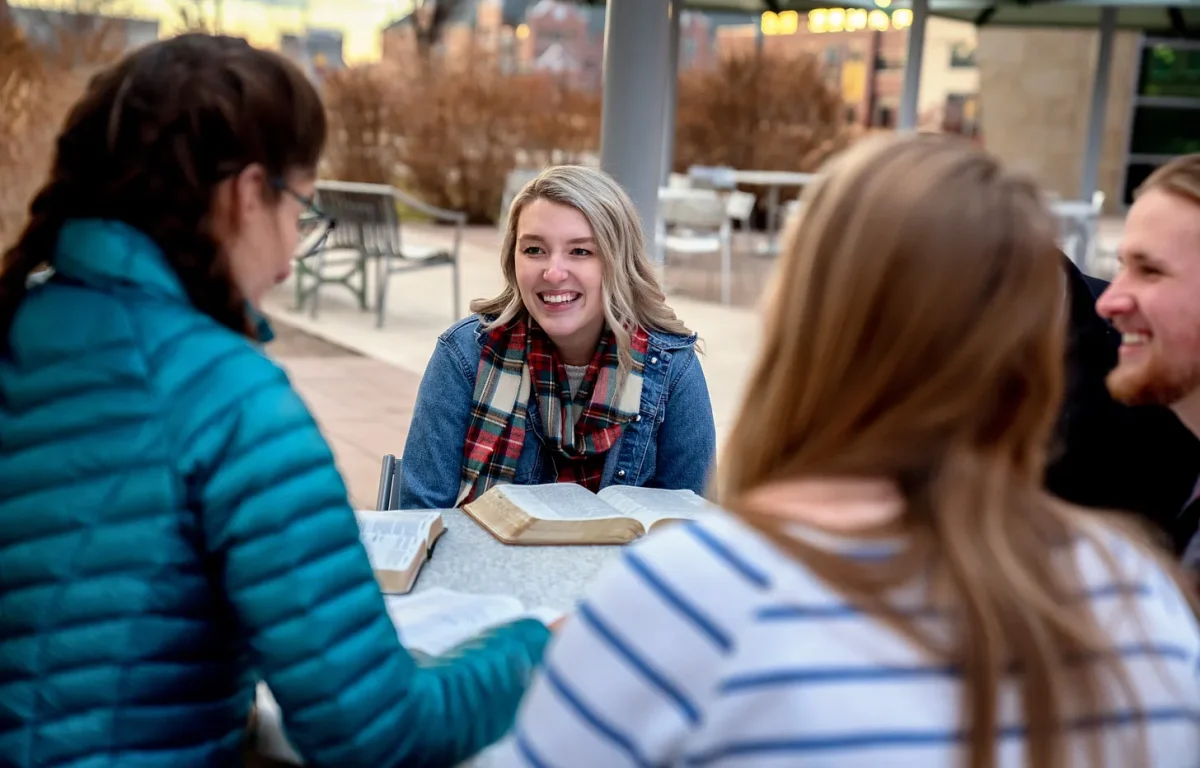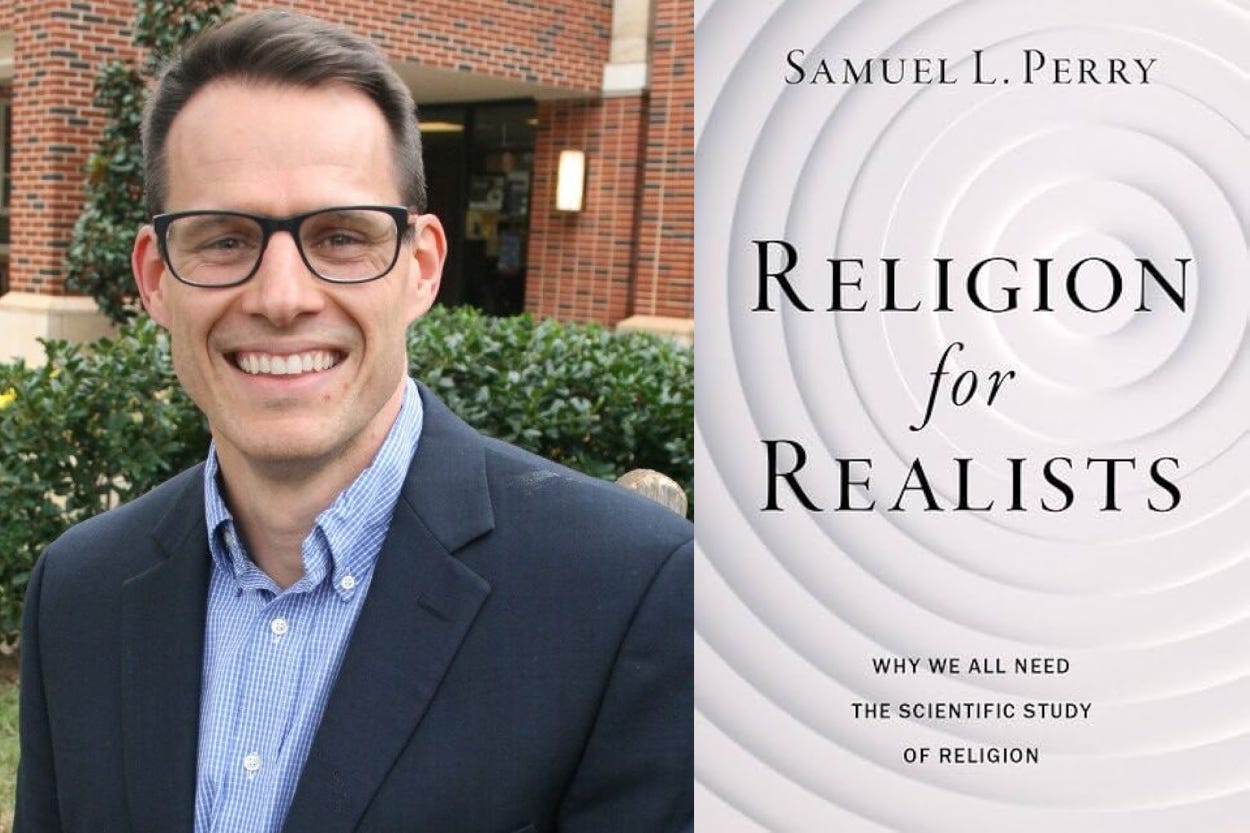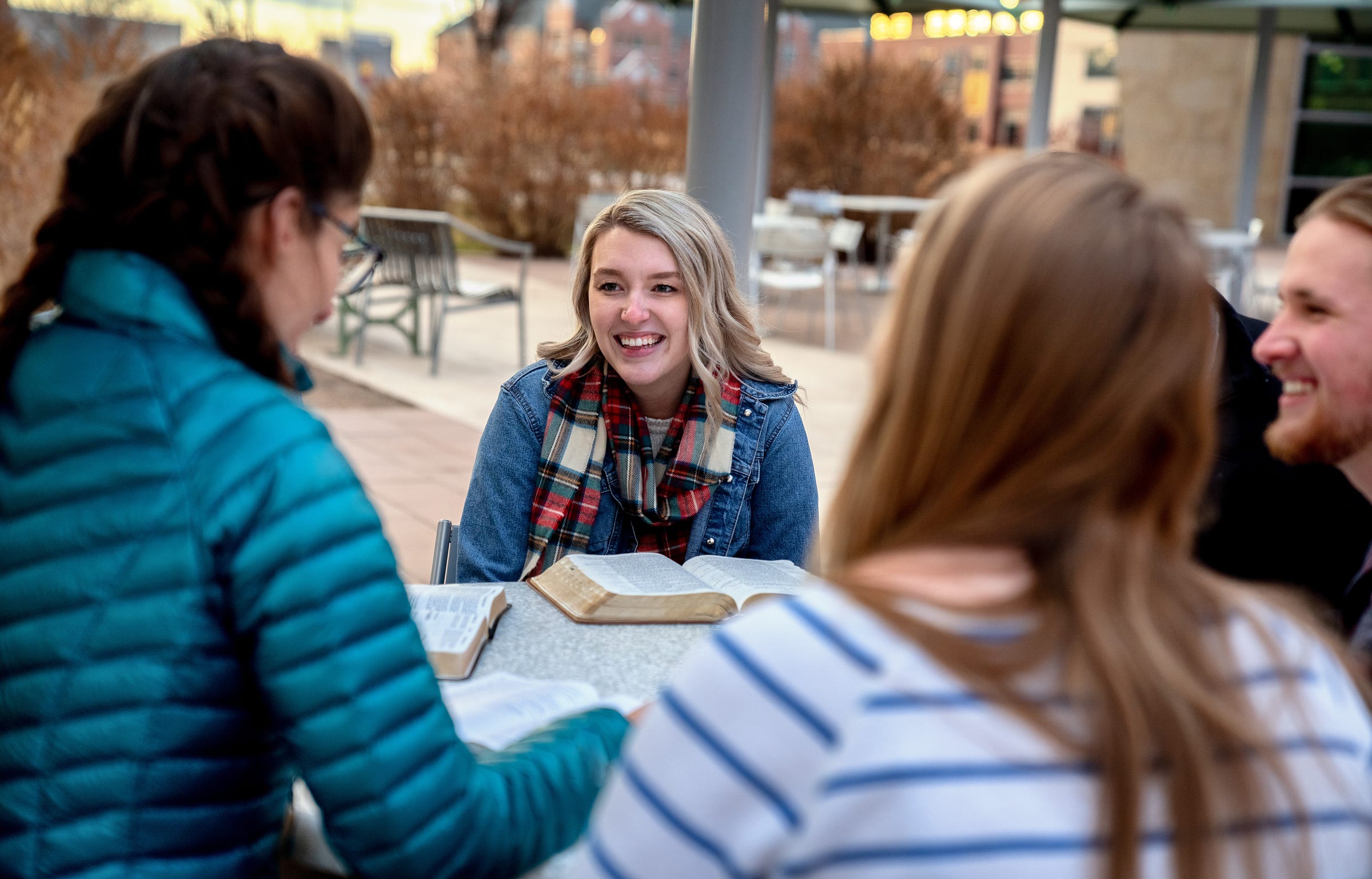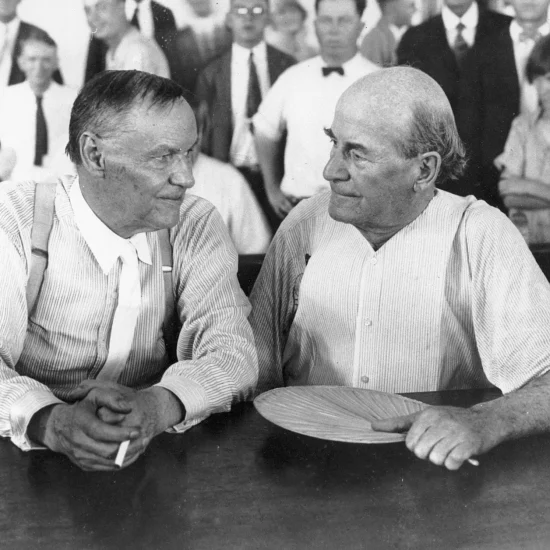
Samuel Perry is here to blow your mind.
That’s probably not how he would describe the purpose of his latest book, Religion for Realists: Why We All Need the Scientific Study of Religion, but it’s certainly the implication of what he’s trying to accomplish. On the surface, the project sounds fairly mundane. He’s popularizing key ideas that social science has learned about how the sacred operates in our lives and our society. The scandal is that these ideas challenge some of our most cherished assumptions.
If everything we think we know about religion is wrong, it’s because we understand religion through an “Anglo-Protestant” lens. Thus, we assume that religion functions in a particular way. People interrogate and come to believe (or disbelieve) certain ideas, which then motivate their behavior. First, we reason or assent to faith in our heads. Then, we act in alignment with our accepted and articulated beliefs.
While this is a well-rehearsed story, social science (and, upon a little reflection, our own experience) reveals something quite different. The main driver of our behavior is social identity. We belong to certain groups and we seek to act in accord with the norms and expectations of people who are like us. Religion is no exception.

Perry highlights his own past work studying Christian adoption movements as an illuminating example. Having absorbed the idea that conservative Christians should start families and raise kids, there was a concerted effort (books, conferences, sermons, etc.) to promote adoption as a practice that conservative Christians should undertake as an expression of their faith. In reality, other sociological factors (e.g. rising infertility, couples getting married later in life) were behind many of these stories. Theological and biblical explanations were given to explain behavior according to the norms and beliefs of the religious group, but it wasn’t what animated adoption decisions.
It’s easy to see religion operating this way in our current politics as well. As partisan identities become more and more significant in our lives, Christians first associate themselves with being a Republican or a Democrat. Then, they justify their positions and defend the behavior of their preferred candidates in religious terms, even when the character of such candidates is quite flawed and the actions prove quite profane. Let those who have ears hear.
Beyond the importance of social identities in affecting our religious beliefs and behavior, Perry elucidates other research findings gifted to us from social science. He discusses the influence of demographics in the rise and decline of religious groups and the role that social structures play in limiting human action in this sphere.
Still, Perry is careful to qualify his arguments. As a practicing Protestant, he’s not out to undermine religion. He still thinks theological debates matter, even if they’re downstream from social identity. As an accomplished scholar, he’s simply trying to make these ideas and findings accessible to a broader audience. He’s trying to help his readers understand how the world actually works, not how we might prefer it to be.
Indeed, his discussion of social identity provoked lots of new thoughts for me as a congregational pastor. If group belonging is first and foremost, then it’s important for the community I lead to communicate an understanding of who we are (and are not). We need to pay attention to the way that belonging to our church connects and conflicts with other identities people may use to navigate and define their lives.

Yet, the intended audience for Perry’s book is not only the academically uninitiated. He’s also got a message for the scholarly community as well. He rightly names that within the academy, religion is often ignored or dismissed. Here he sees an intellectual bias at work that needs to be corrected. Given the role religion plays in society, it deserves more investigation from those whose vocation is understanding our social world.
“Academics are a relatively secular population and there’s evidence that not only do they fail to recognize religion’s importance to most of the country and the world, they also tend to unfairly view religious specialists as subpar academics,” he writes near the book’s end. “Leaning into the scientific study of religion … not only immediately increases [scholarly] relevance but also corrects our blindspots and helps fulfill the promise of the social sciences.”
As a fledgling social scientist whose doctoral project focuses on religion, I wholeheartedly agree. There are many academic disciplines where, for whatever reason, religion is understudied. I personally hope Perry’s call for greater scholarly engagement is heeded.
Given the topics covered and arguments made, this book is bound to generate controversy and discussion. My deep suspicion is that those taking the greatest offense will be the ones who have least engaged with its material. The readers who take the time to understand and reflect on Perry’s arguments will find themselves wiser about how religion functions in our society. And to borrow from Thomas Jefferson, a well-informed citizen is the best defense against religious and political tyranny.
You can hear more from Sam Perry in a recent episode of our award-winning podcast, Dangerous Dogma. He’s also generously agreed to send one of our paid subscribers an autographed copy of Religion for Realists, so upgrade today and make sure you’re eligible for that drawing.
As a public witness,
Beau Underwood






